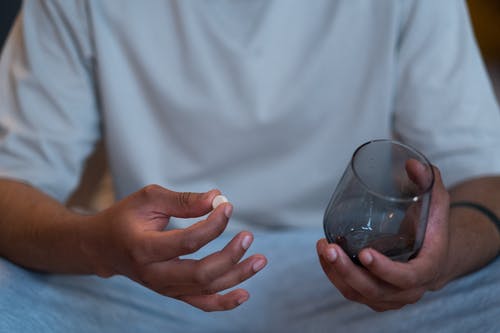What is the Best Time To Take Fluvoxamine Morning or Night?

As humans, we all want our medicines to be as effective as possible, and that requires effort on our part. It may be necessary to avoid taking pills with certain foods or drinks and to check that medications won’t interfere with each other.
And in some cases, it may be important to take a drug at a particular time of day. This approach, known as chronotherapy, is gaining attention as research suggests a relationship between when we take medications and how well they work.
What is fluvoxamine?
Fluvoxamine is an antipsychotic sold under brand names such as Luvox or Fevarin. It belongs to the class of drugs known as the selective serotonin reuptake inhibitor (SSRI) class. It is primarily used for obsessive-compulsive disorder (bothersome thoughts that won’t go away and the need to perform certain actions over and over) and social anxiety disorder (extreme fear of interacting with others or performing in front of others that interferes with normal life).
How Fluvoxamine works
Fluvoxamine is in a class of medications called selective serotonin reuptake inhibitors (SSRIs). It works by increasing the amount of serotonin, a natural substance in the brain that helps maintain mental balance.
How should I take fluvoxamine?
Follow all directions on your prescription label and read all medication guides or instruction sheets. Your doctor may occasionally change your dose. Use the medicine exactly as directed.
Take fluvoxamine at bedtime, with or without food. Swallow the capsule whole and do not crush, chew, break, or open it.
Tell your doctor if you have any changes in sexual function, such as loss of interest in sex, trouble having an orgasm, or (in men) problems with erections or ejaculation. Some sexual problems can be treated.
Do not stop using fluvoxamine suddenly, or you could have unpleasant symptoms (such as agitation, confusion, tingling, or electric shock feelings). Ask your doctor before stopping the medicine. Store tightly closed at room temperature, away from moisture and heat.
What is the best time to take fluvoxamine?
Night is the best time to take a medication like fluvoxamine (Luvox) because it can make you feel drowsy if you take it during the day, it may cause some people to become less able to think clearly or to have blurred vision or poor muscle control. Selective serotonin reuptake inhibitors like fluvoxamine are better tolerated if you take them before going to bed at night.
Studies have also shown that fluvoxamine (Luvox) can also exert the effects of a sleeping pill and help relieve complaints or symptoms of insomnia.
What are the other possible side effects of fluvoxamine?
Get emergency medical help if you have signs of an allergic reaction: skin rash, blisters, or hives; fever, joint pain; difficult breathing; swelling of your face, lips, tongue, or throat.
Tell your doctor right away if you have new or sudden changes in mood or behavior, including new or worsening depression or anxiety, panic attacks, trouble sleeping, or if you feel impulsive, irritable, agitated, hostile, aggressive, restless, more active, or talkative, or have thoughts about suicide or hurting yourself.
Call your doctor at once if you have;
• anxiety, racing thoughts, risk-taking behavior, sleep problems (insomnia), feelings of extreme happiness or irritability;
• blurred vision, eye pain or redness, seeing halos around lights;
• a seizure;
• changes in weight or appetite;
• easy bruising or unusual bleeding; or
• low blood sodium–headache, confusion, problems with thinking or memory, weakness, feeling unsteady.
Seek medical attention right away if you have symptoms of serotonin syndrome, such as agitation, hallucinations, fever, sweating, shivering, fast heart rate, muscle stiffness, twitching, loss of coordination, nausea, vomiting, or diarrhea
Fluvoxamine can affect growth in children. Your child’s height and weight should be checked often.
Common side effects may include:
• drowsiness, dizziness, weakness;
• anxiety, depression, agitation, trouble sleeping;
• shaking, increased muscle movements;
• upset stomach, gas, loss of appetite;
• nausea, vomiting, diarrhea;
• dry mouth, yawning, sore throat;
• muscle pain;
• sweating, rash;
• heavy menstrual periods; or
• sexual problems.
This is not a complete list of side effects and others may occur. Call your doctor for medical advice about side effects. You may report side effects to FDA at 1-800-FDA-1088.





